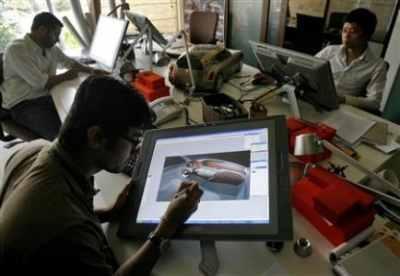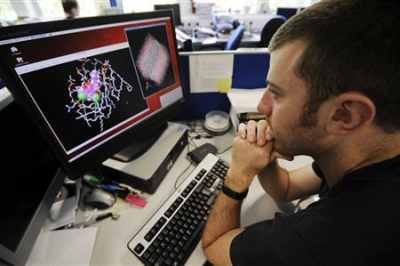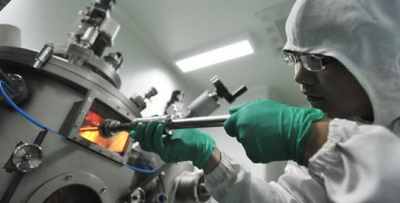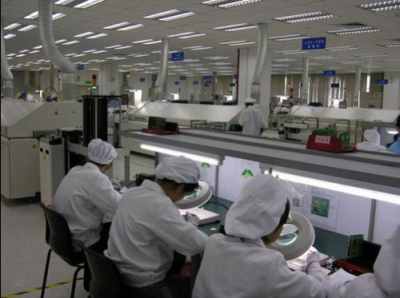Photographs: Punit Paranjpe/Reuters Latika K Jha in Washington
The United States is lagging behind India, China and Brazil in rate of growth in research and development (R&D) indicators, a Pentagon report has said.
The global investment in R&D rose to nearly USD 1.1 trillion in 2007 in the three major regions where R&D is funded, the report said.
Since the beginning of the 21st century, global spending on R&D has nearly doubled, publications have grown by a third, and the number of researchers worldwide continues to rise.
For Rediff Realtime News, ...
R&D growth: India, China, Brazil ahead of US
Photographs: Paul Hackett/Reuters
"India, Brazil, and South Korea have similar targets; over the same period, US spending is flat or declining," said the 132-page report of the Defence Science Board Task Force on Basic Research.
The report dated January has been released by the Pentagon this month.
All R&D expenditures in the United States in 2011 totaled approximately $ 405 billion. While the United States has been the preeminent research- producing nation for the past 50 years, basic research today is becoming increasingly global.
For example, the growth in research publications and patents has occurred primarily in the developing world, it said.
...
R&D growth: India, China, Brazil ahead of US
In the past, many of the best students and researchers chose to study and work in the United States. This situation is changing, it said.
Many countries are making new and significant investments in basic research, and a larger number of nations are participating at the leading edge of scientific discovery.
Further, some foreign-born scientists are leaving the US to return to their native countries to find better opportunities, spurred by strict US immigration laws and the poor US economy, the report said.
As the world continues the globalisation of technology, manufacturing and commerce, the US will be more dependent than ever on technology and innovation for its defence and national security strategy from outside its sphere of influence.
...
Title:R&D growth: India, China, Brazil ahead of US
In order to avoid technological surprise, it is important for the DOD to be involved in the cutting edge of basic research on topics of specific interest to the DOD-whether the cutting edge is in the United States or overseas, it said.
More than at any time in the past, science is an activity that is conducted collaboratively and internationally, it added.
Observing that by far the most effective way to learn what is going on elsewhere is to work there, not to read publications, attend conferences, or make short visits, valuable as those latter activities may be, the report said the next generation of scientists and engineers - both in the US and overseas - are responding to these trends.
...
R&D growth: India, China, Brazil ahead of US
"The number of US students studying abroad is climbing every year, from less than 50,000 in 1985 to more than 200,000 in 2005. Students are increasingly going to study in non-traditional destinations, and increasingly to non-English speaking countries.
US students studying in China leapt 34 per cent between 2003 and 2005, and the numbers going to Argentina and India both were up," the report said.
Although the United States today remains conclusively the global leader in science, according to metrics such as the size of the research community and the number of Nobel prizes, the report said global science funding, however, is growing and the US can no longer attract all the best and brightest from the rest of the world.
...
R&D growth: India, China, Brazil ahead of US
"For the United States to maintain its lead, trained scientists from around the world must be able to come to the United States and participate in the research carried out here.
As well, students from around the world must be allowed not only to attend US graduate schools but even more important to remain in the United States for postdoctoral work and
careers in science," it said.
"And the converse: US scientists have to work abroad, side-by-side with foreign researchers in their laboratories, and US students have to study abroad," it added.







article